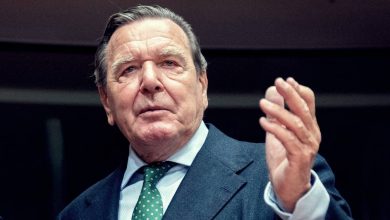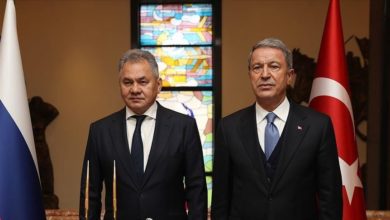Russia Halts Gas Supplies to Austria, Marking a Shift in European Energy Relations
Russia has officially informed Austria that it will halt all natural gas deliveries starting Saturday. This decision marks a pivotal moment in European energy history, as Moscow’s gas flows to the continent, once dominant, are now limited to just two countries: Hungary and Slovakia. The move underscores the rapid decline of Russia’s influence over Europe’s energy supply since its 2022 invasion of Ukraine.

Austria’s energy relationship with Russia dates back to 1968 when it became the first Western European country to purchase Soviet gas. The deal, signed just months before the Soviet invasion of Czechoslovakia, was seen as a cornerstone of energy diplomacy during the Cold War. For decades, Russian natural gas played a significant role in meeting Austria’s energy needs.
However, the dynamics have shifted dramatically in recent years. The invasion of Ukraine in 2022 and the subsequent sanctions imposed by Western nations have led to a sharp decline in Russia’s energy exports to Europe. Austria, like many other European nations, has since sought to diversify its energy sources, reducing its reliance on Russian gas.
What Does This Mean for Austria?
Austria, which has traditionally relied on Russian gas for a significant portion of its energy mix, now faces the challenge of fully transitioning to alternative sources. The country has already taken steps to import liquefied natural gas (LNG) and increase investments in renewable energy, but the sudden halt in supplies is expected to create short-term disruptions, particularly as the winter season approaches.
The Austrian government has emphasized the importance of energy security and announced plans to accelerate efforts to secure alternative energy supplies. Analysts warn that this shift, while necessary, may result in higher energy prices and increased pressure on households and businesses.
Russia’s Dwindling Influence in Europe
Before its invasion of Ukraine, Russia supplied nearly 40% of the European Union’s natural gas needs, making it the region’s largest energy provider. However, the geopolitical fallout from the war has severely weakened Russia’s position in the European energy market. Today, Moscow supplies significant volumes of gas only to Hungary and Slovakia, two countries that have maintained relatively closer ties with Russia compared to other EU members.
The decision to halt supplies to Austria is seen as part of Russia’s broader strategy to leverage its remaining energy exports for political influence. However, the long-term economic impact of losing European markets is expected to further strain Russia’s economy, which heavily relies on energy exports for revenue.
The Broader European Context
Europe has been steadily reducing its dependence on Russian gas since the onset of the war in Ukraine. Initiatives such as sourcing LNG from the United States and Qatar, expanding pipeline capacity from Norway, and accelerating renewable energy projects have played a crucial role in reshaping the continent’s energy landscape.
The suspension of Russian gas to Austria is yet another reminder of the importance of these efforts. While the transition has not been without challenges, it has underscored Europe’s determination to secure energy independence and resilience against future geopolitical shocks.
What Lies Ahead?
The halt in Russian gas supplies to Austria is likely to have ripple effects across the European energy market. Experts predict increased competition for alternative sources and potential price hikes in the short term. Meanwhile, Austria will need to further accelerate its shift to renewables and explore partnerships with new energy suppliers to meet domestic demand.
For Russia, the move signals the near-total erosion of its once-dominant role in Europe’s energy sector. As Moscow turns its attention to Asian markets, its energy ties with Europe appear to be entering an irreversible decline. This development is not only a significant geopolitical shift but also a stark reminder of how energy security has become a critical issue in global politics.




